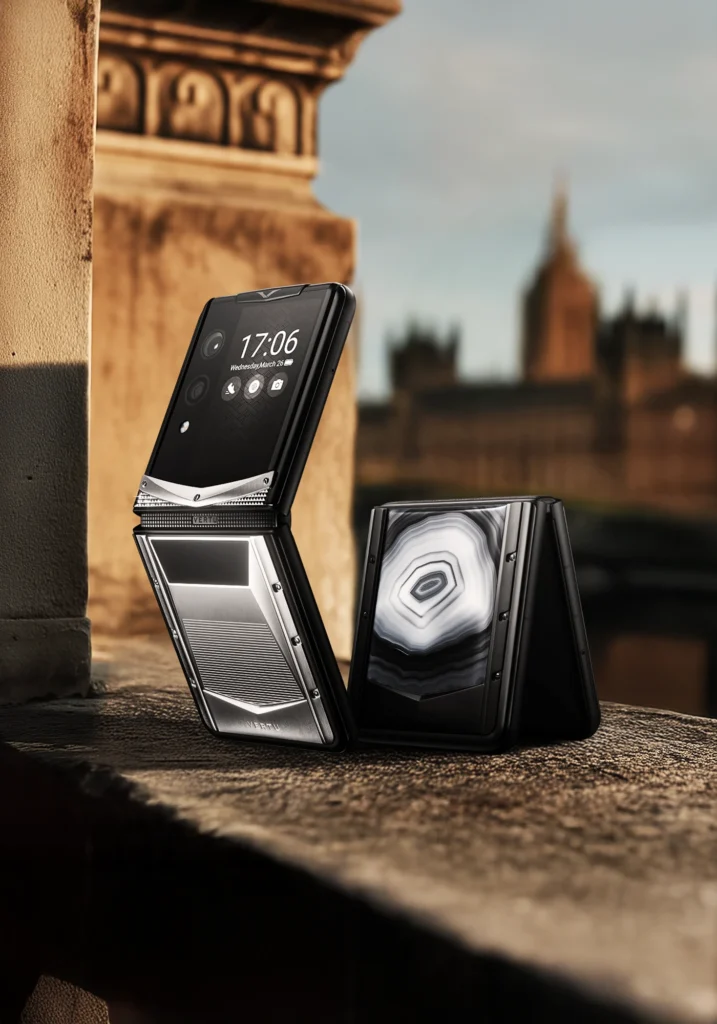In an increasingly interconnected world, where our smartphones hold a treasure trove of personal and professional data, the importance of robust security cannot be overstated. From sensitive financial information to private communications and cherished memories, our digital lives reside on these devices. This makes the concept of phones with encryption chips not just a luxury, but a vital necessity for anyone serious about digital privacy and data protection. This comprehensive guide will explore the intricacies of this technology, offering practical knowledge and insights to help you navigate the landscape of secure mobile communication.
What Exactly is an Encryption Chip in a Phone and Why is it Crucial?
An encryption chip (often referred to as a hardware security module or secure element) is a dedicated physical component within a smartphone designed to handle cryptographic operations and securely store sensitive data. Unlike software-based encryption, which relies on the phone's main processor, a hardware encryption chip provides an isolated, tamper-resistant environment. This dedicated chip generates and stores encryption keys, performs cryptographic calculations, and protects data even if the main operating system is compromised. It’s crucial because it offers a foundational layer of security, safeguarding your data from sophisticated attacks and unauthorized access, making your device one of the most secure phones with encryption chips.
What are the Core Concepts Behind Phones with Encryption Chips?
The core concepts behind phones with encryption chips revolve around hardware-level isolation, cryptographic key management, and secure boot processes. The encryption chip acts as a secure enclave, separate from the main CPU and memory, ensuring that encryption keys and sensitive operations are never exposed to the wider system. It manages the lifecycle of these keys, from generation to storage and deletion, making them extremely difficult to extract. Furthermore, these chips often play a role in the secure boot process, verifying the integrity of the operating system before it loads, preventing malicious software from taking control from the outset.
What Important Terminology Should You Know Regarding Encryption Chips?
When discussing phones with encryption chips, several key terms are essential. A Secure Element (SE) is a tamper-resistant platform capable of securely hosting applications and their confidential data. Trusted Execution Environment (TEE) is an isolated, secure area within the main processor that runs simultaneously with the operating system but is separate from it, offering enhanced security for critical operations. Hardware-backed encryption refers to the use of a dedicated chip to perform cryptographic functions. FIPS (Federal Information Processing Standards) certifications often indicate a high level of security validation for these chips. Understanding these terms will help you assess the true security capabilities of a device.
What are the Basic Principles of Encryption Chip Functionality?
The basic principles of encryption chip functionality involve offloading critical security tasks from the main processor to a specialized, secure unit. This unit is designed to protect sensitive data and cryptographic keys from both physical and software attacks. When you lock your phone, for example, the encryption chip ensures that your data is encrypted using keys it securely holds. When you unlock it, the chip uses these keys to decrypt your data. This process is transparent to the user but provides a robust shield against data breaches, forming the backbone of security in phones with encryption chips.
How is Encryption Chip Implementation Carried Out in Smartphones?
Encryption chip implementation in smartphones typically involves integrating a dedicated secure element or a hardware-backed TEE directly into the device's architecture. Manufacturers like Apple (with their Secure Enclave) and Google (with their Titan M chip) embed these components during the manufacturing process. These chips are then tightly integrated with the device's operating system and biometric sensors (like fingerprint readers or facial recognition) to authenticate users and manage access to encrypted data. This hardware-software synergy ensures that your data is encrypted at rest and in transit, providing end-to-end security.
What Are the Best Practices for Maximizing Security on Phones with Encryption Chips?
To maximize security on phones with encryption chips, it's essential to combine hardware protection with smart user practices. Always use strong, unique passcodes or biometric authentication. Keep your operating system and apps updated to patch any potential vulnerabilities. Be wary of suspicious links or attachments to avoid malware. Regularly back up your encrypted data to a secure cloud service or external drive. Even with a powerful encryption chip, your proactive engagement with security practices remains crucial for maintaining an impenetrable digital defense.
What Common Challenges Might Users Face with Encryption Chips?
While offering robust security, encryption chips can present some common challenges. A primary concern for some users might be the perception of reduced data recovery options if keys are lost or the chip is damaged beyond repair, though modern systems often have secure recovery protocols. Compatibility issues with certain legacy software or hardware could also arise, though this is rare with mainstream devices. For some, the added cost of a phone with a dedicated encryption chip might be a consideration, as this advanced security often comes with a premium price tag.
What Key Benefits Do Phones with Encryption Chips Offer?
The key benefits of phones with encryption chips are substantial. They provide superior data protection against unauthorized access, even in cases of device theft or sophisticated hacking attempts. This hardware-level security enhances privacy for sensitive communications and personal information. They bolster the integrity of the operating system through secure boot processes, preventing malicious software from loading. Furthermore, these chips often accelerate cryptographic operations, meaning encryption and decryption happen seamlessly without impacting performance, making secure phones with encryption chips a highly desirable option.
What Measurable Results Can You Expect from Using a Phone with an Encryption Chip?
Using a phone with an encryption chip provides several measurable results in terms of enhanced security and peace of mind. You can expect a significantly reduced risk of data breaches and unauthorized access to your personal information. Faster and more efficient encryption/decryption processes mean your phone's performance isn't hampered by security measures. You'll benefit from a stronger defense against malware and rootkits due to secure boot mechanisms. Ultimately, the most significant result is the enhanced confidence that your digital life is protected by state-of-the-art hardware security.
What Are the Key Success Indicators for Adopting Encryption Chip Technology?
Key success indicators for adopting encryption chip technology in your smartphone use include maintaining a consistent level of data privacy and security, experiencing no performance degradation due to encryption, and having peace of mind about your digital assets. If you can confidently store sensitive information, conduct secure transactions, and communicate privately without fear of compromise, then the encryption chip is successfully serving its purpose. A seamless and secure user experience, without needing to constantly worry about data vulnerability, signifies successful adoption.
Conclusion: Your Digital Fortress in Your Pocket
Through this comprehensive exploration, we have gained valuable insights into all aspects of phones with encryption chips. Understanding and utilizing this technology is no longer optional but a fundamental requirement for anyone serious about digital security in today's world. Mastering this knowledge will help you achieve better results in protecting your personal and professional digital assets. Start prioritizing devices with these advanced security features today, and you can be confident in achieving a truly secure mobile experience.
FAQ:
Q1: Is an encryption chip the same as a fingerprint scanner or facial recognition?
A1: No, while fingerprint scanners and facial recognition are authentication methods, an encryption chip is a hardware component that secures the data itself. The biometric data used for authentication is often processed and stored securely within the encryption chip, but they serve different functions.
Q2: Do all modern smartphones have an encryption chip?
A2: Many flagship and mid-range smartphones from major manufacturers now incorporate some form of hardware-backed security, often including a dedicated encryption chip or secure element, but it's not universally true across all models, especially budget devices.
Q3: Can an encryption chip prevent all forms of hacking?
A3: While an encryption chip provides a formidable layer of defense against many sophisticated attacks, no security measure is 100% foolproof. It significantly raises the bar for attackers, but user vigilance against phishing, malware, and physical compromise remains essential.
Q4: How can I tell if my phone has an encryption chip?
A4: Most manufacturers of phones with dedicated encryption chips (like Apple with its Secure Enclave or Google with Titan M) prominently feature this information in their security specifications. Checking your phone's official product page or technical specifications is the best way to confirm.
Recommended For:
-
Business Professionals: Individuals handling sensitive company data, confidential communications, and intellectual property on their mobile devices.
-
Privacy Advocates: Anyone deeply concerned about their digital privacy and eager to protect their personal information from surveillance and data breaches.
-
Government and Legal Sector Personnel: Professionals requiring the highest level of security for classified or highly confidential information.
-
High-Profile Individuals: Public figures, journalists, or anyone who might be a target for sophisticated digital attacks due to their position or influence.









